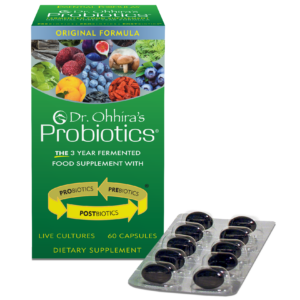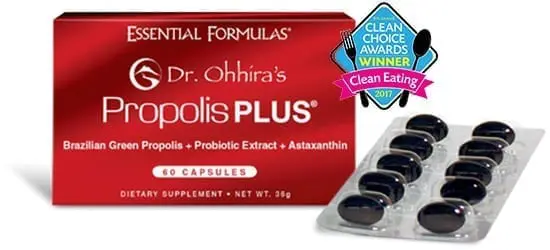Something that doesn’t get enough press—especially in this, the year of COVID-19—is the presence of the Superbug. No, it’s not a cockroach that can lift a refrigerator or a spider that can travel at the speed of sound. This Superbug refers to an antibiotic resistant infection. It’s a scary thought. We’re used to infections that require antibiotics. We go to the doctor, get the prescription, and the antibiotic almost magically makes things better and gets us back on our feet. But the Superbug scoffs at the sight of an antibiotic.
A 2-year-old study by the Washington University St. Louis reported that Superbug infections killed over 150,000 people annually in the United States. For perspective, 150,000 is the population of Kansas City, Kansas. For additional perspective, consider this―in 2019, breast cancer and prostate cancer took the lives of approximately 75,000 people combined. That is half the number of people who died from a Superbug.
The rise of the Superbug
Superbug infections are those that have developed a resistance to antibiotics. The United States Center for Disease Controls and Prevention (CDC), along with the European Centre for Disease Prevention and Control (ECDC) and the World Health Organization (WHO), consider antibiotic resistant bacterial infections to be a global health crisis. While most people around the world consider the United States as having one of the most advanced healthcare systems in the world, we have the 3rd highest occurrence of antibiotic resistant bacterial infections.
In addition to the overprescribing of antibiotics, which is discussed later, the prevalent use of antibiotics in the food industry has contributed to the rise of the Superbug. Animals raised for food, such as cows, pigs, and chickens, are provided antibiotics to keep them alive, healthy, happy, and productive. Their living conditions are anything but 4-star, so they are highly susceptible to infectious diseases. The prescription? Antibiotics. Also, they are given antibiotics to promote weight gain, important when raising animals for slaughter.
Overprescription of Antibiotics
The primary cause of the rise in Superbugs is the overprescription of antibiotics. Here’s a single, but perfect, example―multiple clinical trials conducted over the past 40 years have shown that antibiotics aren’t effective for acute bronchitis. However, a study published by the American Medical Association (AMA) reported that physicians prescribe antibiotics to fight bronchitis over 70% of the time. Sure, the bronchitis goes away, but not necessarily due to the antibiotics. Bronchitis usually resolves itself—without treatment—in less than 3 weeks.
But before you blame the overprescription of antibiotics solely on medical professionals, it’s important to note that many people demand antibiotics when they visit their doctor, whether for a cold, the flu, or at the first indication that their child has an earache. Many doctors simply respond to the requests of their patients to make them happy, because if their patients aren’t happy, they’ll find another doctor. And in our digital age, getting poor patient satisfaction ratings can mean they get posted online for the world to see.
So, what can you do to fight or ward off a Superbugs? Here’s a great start. Boost your immune system. What many people don’t realize is that your gut is a major, critical element of a healthy immune response.
The Gut Immune System
While it may sound hard to believe, the largest surface of your body exposed to the environment is your intestinal tract. Its surface is up to 20 times greater than the surface of your skin. It is astonishingly large. Your gut immune system, which refers to the lining of your intestinal tract, contains from 70-80% of your immune cells. That’s why it is so important to protect it as much as possible. Keeping it healthy is a key to keeping your immune system healthy.
There are a number of things that can influence your immune system, such as levels of zinc, Vitamin D, and stress, and your exposure to environmental toxins. That’s not a complete list; just a few of the many that affect the immune system. However, what most people don’t understand is how important their gut immune system is to their overall health. And in the event they do know that fact, there is a good chance they don’t understand how to keep it functioning at the highest, most efficient levels. Here’s how to do it.
The 3 components to maintain a Healthy Gut Immune System
-
A healthy presence (85-90%) of friendly, probiotic bacteria
There are 2 ways to get more probiotics, or friendly bacteria, into your digestive system― fermented food that contains probiotics and take high-quality probiotic supplements. Don’t be alarmed by the word fermented. Fermentation simply means that the carbohydrates from the food source are converted to organic acids through the benefit of yeasts or bacteria. For instance, cucumbers are converted to pickles, cabbage to sauerkraut, and milk to yogurt, cheese, and sour cream. In fact, natural yogurt, which is low in added sugar, is one of the best ways to get probiotics through a food source.
Please note: Yes, beer and wine are fermented, but their fermentation process removes the probiotics. So, no, consuming larger quantities of them can’t be used as an excuse to boost your consumption of probiotics. Also, baking and canning can make fermented foods inactive. However, most fermented foods do contain probiotics.
-
Eating fiber-rich foods
Yes, we’ve all heard about the importance of eating a fiber-rich diet, but it’s usually mentioned as a way to address staying regular and preventing constipation. No question, those are great reasons to ingest fiber-rich foods. And here are a few others.
A fiber-rich diet will:
- Help your probiotic bacteria produce the important health-regulating postbiotic metabolites.
- Prevent your probiotic bacteria from starving, or dying off, and
- Help prevent bad bacteria from proliferating.
-
The presence of postbiotic metabolites
Postbiotic metabolites are health-regulating compounds produced by probiotic bacteria when fiber-rich food is digested. They protect, renew, and assist the body in carrying out both its simplest and most critical functions. Think of them as air traffic controllers; they regulate the function of each organ system in the body, including, of course, the gastrointestinal system, the immune system, and even the brain. The question is, How can I get postbiotics? It’s a good question, and there is an easy answer. Postbiotic metabolites are created by probiotic bacteria. When choosing a probiotic supplement, be sure to look for a full spectrum product with prebiotics, probiotics and naturally created postbiotics.
Your ultimate goal―maintain a healthy Microbiome
No question, it’s important to resist the harmful trend to overprescribe antibiotics unnecessarily and limit the use of them in animal feed. But the best thing individuals can do to help reduce the proliferation of Superbugs is to maintain a healthy microbiome; it’s the foundation of a healthy immune system. The microbiome is the presence in the human body of microbes, which includes protozoa, fungi, bacteria, and viruses.
To help maintain a healthy microbiome, a great start is to use Dr. Ohhira’s Probiotics, available at Essential Formulas. They are the only product in the world that utilizes a multi-year fermentation production process, which enables the probiotic bacteria the necessary time to ferment the fiber-rich foods with which they are supplied. What results is the production of over 400 postbiotic metabolites. And by delivering those postbiotic metabolites, Dr. Ohhira’s Probiotics leads to rapid improvements in those with gastrointestinal issues.
Your body deserves the best Probiotics available. It deserves Dr. Ohhira’s Probiotics.







